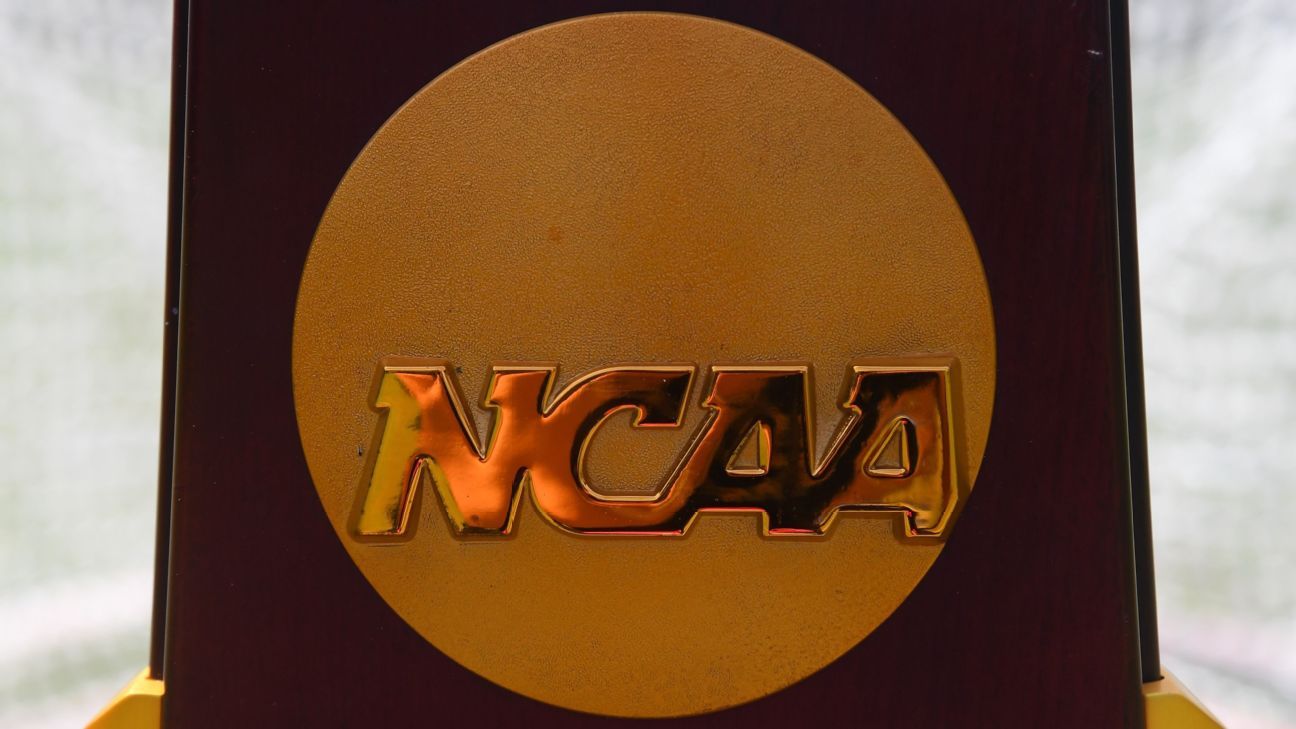The NCAA says the states of Tennessee and Virginia threaten to throw college sports into “disarray” if granted the temporary restraining order and preliminary injunction sought as part of their lawsuit arguing the group’s name, image and likeness rules violate antitrust law.
The organization asks a judge to deny both motions in its 25-page response filed Saturday with the U.S. District Court of the Eastern District of Tennessee. A judge on Feb. 13 will hear a request by the attorneys general of Tennessee and Virginia for a preliminary injunction.
“There is no reason to upend this process, invite chaos on a moment’s notice, and transform college sports into an environment where players and schools match up based primarily on the dollars that can change hands,” the NCAA wrote in asking that both motions sought be denied.
“Requests for radical change require sound deliberation.”
Chancellor Donde Plowman revealed in a scathing letter to NCAA President Charlie Baker released Tuesday that the NCAA was investigating Tennessee and The Vol Club, an NIL collective run by Spyre Sports Group. Tennessee’s recruitment of five-star quarterback Nico Iamaleava from California and his NIL contract with Spyre is among the deals receiving scrutiny from the NCAA.
Attorneys general of Tennessee and Virginia followed Plowman’s letter by filing an antitrust lawsuit against the NCAA on Wednesday challenging its ban on the use of NIL compensation in the recruitment of college athletes, and in response to the association’s investigation of Tennessee
Tennessee and Virginia have until Sunday night to respond to the NCAA’s request to deny the requests for the temporary restraining order and injunction.
The lawsuit wants both issued by Tuesday to stop the NCAA from enforcing NIL recruiting rules ahead of National Signing Day on Wednesday while the lawsuit plays out in court.
The NCAA argues granting the motions would result in “recruiting inducements tantamount to pay for athletic performance” and spoil the recruiting process of athletes choosing schools that fit them best while exposing them to “bad actors” signing people to “coercive contracts.
“They do not actually seek here to preserve the status quo, but instead to fundamentally alter the landscape of college athletics by mandating the creation of an NIL market for student-athlete recruits that does not presently exist,” the NCAA said in its motion.
The response also argues the lawsuit provides no evidence of how NIL rules are harming athletes and fail to recognize that the universities inside each state have repeatedly agreed to follow the rules now being challenged.
“Nor do they provide any convincing explanation why rules that have been in place for years, if not decades, have given rise to a state of emergency warranting extraordinary judicial intervention,” the NCAA wrote in its response.
Granting these motions would move universities and athletes closer to an employer-employee relationship, and the NCAA says many athletes don’t want that.
The NCAA also argues that the lawsuit is responding to an “impending investigation” rather than pending punishment. The organization also notes the University of Tennessee is not a party to the lawsuit, which “does not save their case.”
The response argued that the plaintiffs never mention or address that the University of Tennessee agrees every year to follow rules now being challenged and never offered alternatives or asked for clarification of those rules.
The NCAA noted the lawsuit had a declaration from only one current athlete and nothing stops students from signing NIL deals once they arrive on campus.
The response also cited a lawsuit set for trial in January 2025 with athletes asking for a permanent injunction and billions of dollars in damages as compensation. The NCAA noted nobody has asked for a temporary injunction in a case that started in 2020.
That lawsuit already has had more than 40 witnesses give depositions, including athletic department employees from Power Five conferences and the NCAA. That trial will avoid the “disruptive intervention” sought in the lawsuit filed by Tennessee and Virginia’s attorneys general.
